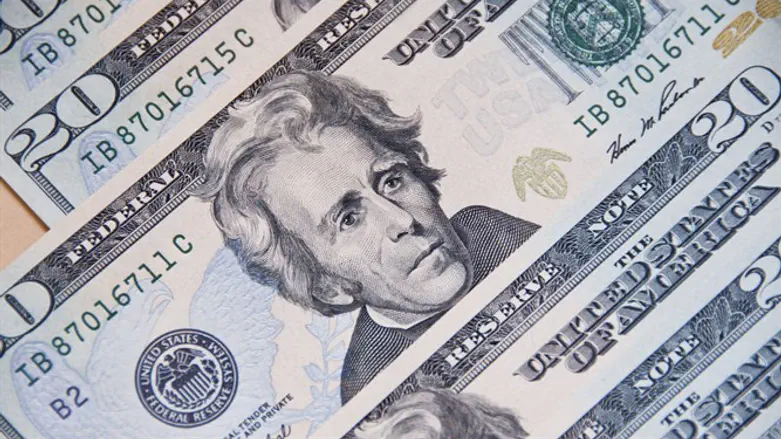
New details emerged on Thursday about the $400 million payment the United States made to Iran earlier this year.
According to The Wall Street Journal, the exchange was tightly scripted and specifically timed to the release of several American prisoners held in Iran.
The picture emerged from accounts of U.S. officials and others briefed on the operation, according to the report. U.S. officials wouldn’t let Iranians take control of the money until a Swiss Air Force plane carrying three freed Americans departed from Tehran on January 17. Once that happened, an Iranian cargo plane was allowed to bring the cash home from a Geneva airport that day.
President Barack Obama and other U.S. officials have insisted the payment didn’t amount to ransom, because the U.S. owed the money to Iran as part of a longstanding dispute linked to a failed arms deal from the 1970s.
U.S. officials have said that the prisoner release and cash transfer took place through two separate diplomatic channels.
But the handling of the payment and its connection to the Americans’ release have raised questions among lawmakers and administration critics, noted The Wall Street Journal.
The use of an Iranian cargo plane to move pallets filled with $400 million brings clarity to one of the mysteries surrounding the cash delivery to Iran first reported by the newspaper earlier this month. Administration officials have refused to publicly disclose how and when the transfer took place. Executives from Iran’s flagship carrier, Iran Air, organized the flight from Tehran to Geneva where the cash—euros and Swiss francs and other currencies—was loaded onto the aircraft, these people said.
“Our top priority was getting the Americans home,” a U.S. official told the newspaper. Once the Americans were “wheels up” on the morning of January 17, Iranian officials in Geneva were allowed to take custody of the $400 million in currency, according to officials briefed on the exchange.
The payment marked the first installment of a $1.7 billion settlement the Obama administration announced it had reached with Tehran in January to resolve a decades-old legal dispute traced back to the final days of Iran’s last monarch, Shah Mohammad Reza Pahlavi. His government paid $400 million into a Pentagon trust fund in 1979 for military parts that were never delivered because of the Islamic revolution that toppled him.
Obama said on August 4 the payment had to be in cash because the U.S. and Iran have no banking relationship, eliminating the possibility of a check or wire transfer.
Similarly, Secretary of State John Kerry said the U.S. never pays ransoms for hostages, rejecting accusations that the $400 million payment to Iran was a quid pro quo for the release of American prisoners.
"First of all, the United States of America does not pay ransom and does not negotiate ransoms with any country," Kerry said. "We never have and we're not doing that now. It is not our policy."
"This is not a new story. It doesn't represent anything the American people weren't told by the President and by the administration," he added.
The alleged ransom was criticized by Republican presidential nominee Donald Trump, who called the incident a “scandal”, and pointed out that negotiations opened when his Democratic rival Hillary Clinton was serving as Secretary of State.
“Our incompetent Secretary of State, Hillary Clinton, was the one who started talks to give 400 million dollars, in cash, to Iran. Scandal!” Trump said.
Other Republican lawmakers have charged that the payment equated to a ransom paid to gain the release of the Americans. Republican leaders said they are preparing to hold hearings on the cash transfer once Congress returns from its summer break in September.
Rep. Sean Duffy (R., Wis.), chairman of a House investigative body, sent letters to the Justice and Treasury departments, as well as the Federal Reserve, on Aug. 10 requesting all records related to the Iran exchange.
Duffy asked Attorney General Loretta Lynch to identify all “persons within the [Justice] Department authorizing or otherwise taking steps to carry out the payment.” Senior Justice officials objected to the cash transfer due to fears it would be seen as a ransom payment, according to people familiar with the discussions.
One of the Americans released in January as part of the prisoner exchange, a pastor named Saeed Abedini, said he and other American prisoners were kept waiting at Mehrabad airport from January 16 to the morning of January 17. He said, according to The Wall Street Journal, in an interview that he was told by a senior Iranian intelligence official at the time that their departure was contingent upon the movements of a second airplane. Abedini said he has been asked to testify next month before the House Foreign Relations Committee.
State Department officials have rebutted Abedini’s comments, saying the delay in his plane’s departure wasn’t related to a second plane or the payment of the $400 million. They said the delay was solely tied to U.S. efforts to locate the wife and mother of another imprisoned American, the Washington Post’s former Tehran bureau chief, Jason Rezaian, and ensuring they were allowed to board the Swiss plane as well.